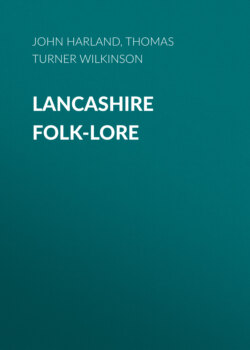Читать книгу Lancashire Folk-lore - Thomas Turner Wilkinson - Страница 13
На сайте Литреса книга снята с продажи.
BOGGARTS, GHOSTS, AND HAUNTED PLACES.
ОглавлениеTable of Contents
What is a Boggart? A sort of ghost or sprite. But what is the meaning of the word Boggart? Brand says that "in the northern parts of England, ghost is pronounced gheist and guest. Hence bar-guest, or bar-gheist. Many streets are haunted by a guest, who assumes many strange appearances, as a mastiff-dog, &c. It is a corruption of the Anglo-Saxon gast, spiritus, anima." Brand might have added that bar is a term for gate in the north, and that all the gates of York are named "bars," so that a bar-gheist is literally a gate-ghost; and many are the tales of strange appearances suddenly seen perched on the top of a gate or fence, whence they sometimes leaped upon the shoulders of the scared passenger. Drake, in his Eboracum, says (Appendix, p. 7), "I have been so frightened with stories of the barguest when I was a child, that I cannot help throwing away an etymology upon it. I suppose it comes from Anglo-Saxon burh, a town, and gast, a ghost, and so signifies a town sprite. N.B.—Guest is in the Belgic and Teutonic softened into gheist and geyst." The "Boggart Hole" therefore means the hollow haunted by the bar-gheist or gate-ghost.
